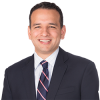Information contained in this publication is intended for informational purposes only and does not constitute legal advice or opinion, nor is it a substitute for the professional judgment of an attorney.
The New York home care industry has faced collapse since a series of New York Appellate Division decisions invalidated New York Department of Labor (NY DOL) policy and held that home care attendants working 24-hour shifts who are employed by third-party agencies must be paid for every hour of the shift and employers could not deduct sleep and meal periods.1 The uncertainty on how to pay the attendants could only be resolved by the court of appeals. Now, that time has come.
Earlier this year, the Second Department Appellate Division issued a decision certifying the question to the court of appeals in Andryeyeva v. New York Health Care, Inc.2 and an accompanying case, Moreno v. Future Care Health Services, Inc.3 The court of appeals held oral argument on February 12, 2019. A decision is typically issued by the court of appeals within 30-60 days after the oral argument date.
The Court of Appeals Panel and Issues on Appeal
Prior to the oral argument, the court of appeals, in its standard practice, published a Case Summary, which sets forth the issues the court is deciding in both the Andryeyeva and Moreno cases:
Plaintiffs – home health care attendants for elderly and disabled clients – worked at the clients’ residences in 24-hour shifts. The attendants in the Andryeyeva action were paid an hourly rate for the 12 daytime hours of their 24-hour shift and a flat rate for the 12 nighttime hours. The attendants in the Moreno action were paid flat rates per shift.
The attendants commenced these putative class actions against their employers contending that they were entitled to the minimum wage for each hour of their 24-hour shifts and their employers’ payment practices violated the Labor Law and 12 NYCRR 142-2.1(b) because it resulted in a regular hourly wage that was below the minimum wage. Employers contended that they were not required to pay the attendants for each hour of a 24-hour shift because they were permitted to exclude 8 hours of sleep time and 3 hours of meal time from the wages, so long as that time for sleep and meals was actually afforded.
In each case, the Appellate Division, Second Department held that the attendants were entitled to be paid the minimum wage for all 24 hours of their shifts, regardless of whether the attendants were afforded opportunities for sleep and meals. Employers argue that the economic model of the home healthcare industry is structured in reliance on the Department of Labor’s interpretation of 12 NYCRR 142-.21(b) that, according to employers, permits payment to home health care attendants for 13 hours of a 24-hour shift, excluding 11 hours for sleeping and taking meal breaks. The attendants counter that employers paid them an unlawfully low wage for those shifts that amounted to less than the minimum wage for each of the 24 hours where the plaintiff was at the client’s residence.
Paying the home care attendants for 13 hours of a 24-hour shift, discussed above, is known as the "13-hour rule."
The Oral Argument4
In addition to the parties to the litigation, the court of appeals allowed the NY DOL, through the New York State Solicitor General’s office, to present oral argument on the issue, because the DOL submitted an amicus brief in support of the home care agencies on the issue of the 13-hour rule (the NY DOL also argued that these cases can proceed as a class action, in contravention to the Appellate Division’s decision in Moreno).5
During oral argument, the court was particularly focused on whether the NY DOL’s interpretative policy governing the 13-hour rule was irrational or unreasonable, challenging the parties and the NY DOL on whether the NY DOL’s guidance is entitled to any deference, and how properly to interpret it. As previously reported, the NY DOL’s interpretative policy has been the focal point of these home care cases, and given the spirited argument and numerous questions asked by the court, the court of appeals appears ready to issue a decision on each of the issues.
Anticipating a Decision
While the industry waits in anticipation for a decision, it is notable that the NY DOL has not issued its permanent regulation on the 13-hour rule. In October 2017, the NY DOL took action and issued an emergency regulation and supporting statement in the New York State Register, clarifying its policy and interpretation of the labor law and stating that bona fide meal periods and sleep times may be excluded from hours worked by home care aides who work a shift of 24 hours or more in accordance with federal Fair Labor Standards Act regulations. The emergency regulation was in effect for 90 days, reissued again for 60 days three times, but was invalidated by the New York Supreme Court on September 26, 2018 in a challenge to the NY DOL’s action, where the court found there was no “emergency” to issue the regulation.6
The NY DOL took the necessary steps to make the emergency regulation a permanent one by holding a public hearing on July 11, 2018 and accepting comments on the proposed regulation.7 However, the NY DOL did not appeal the decision striking down the emergency regulation, nor did the agency reissue the emergency regulation. The NY DOL has not yet issued the permanent regulation. Thus, although there was a brief sigh of relief that liability may have ended at least on a going-forward basis from the date the emergency regulation was issued, that sense of relief was short-lived.
At stake in this decision is whether the New York home care industry can be sustainable if the 13-hour rule is not upheld.
Littler continues to closely monitor legal developments affecting the homecare industry and we have developed strategies for compliance specifically tailored to the alternative compensation and staffing models. Please contact the authors of this article for additional strategies and any additional information needed.
See Footnotes
1 See Lisa M. Griffith, Ira Wincott, and Angelo Spinola, Certainty is on the Horizon for the New York Home Care Industry, Littler ASAP (Mar. 8, 2018). For further background, see Angelo Spinola and Lisa Griffith, New York State Supreme Court Finds 24-Hour Home Care Attendants Must be Paid for Sleep and Meal Periods, Littler Insight (Mar. 25, 2015); Lisa M. Griffith, Angelo Spinola and Ira Wincott, Another New York State Appellate Court Finds 24-Hour Non-Residential Home Care Attendants Must be Paid for Sleep and Meal Periods, Littler ASAP (Sept. 15, 2017).
2 Andryeyeva v. New York Health Care, Inc., 61 N.Y.S.3d 280 (2d Dept. Sept. 13, 2017).
3 Moreno v. Future Care Health Srvs., Inc., 61 N.Y.S.3d 589 (2d Dept. Sept. 13, 2017). Littler submitted an amicus curiae brief in support of the Defendants in both cases.
4 The oral argument was live streamed on You Tube and recorded, which can be viewed here: https://www.nycourts.gov/ctapps/live.html
5 Although parties submitting briefs as amicus curiae are not typically permitted to present oral argument, the Court of Appeals will allow a State agency, such as the DOL, to present oral argument when that agency’s interpretation of a law is at issue, such as in this case.
6 Matter of Chinese Staff and Workers Assn. v. Reardon, 2018 NY Slip Op 32391 (Supreme Court, New York Co., Sept. 25, 2018). See Ira D. Wincott, Lisa M. Griffith, Angelo Spinola, Daniel Gomez-Sanchez and Sanjay Nair, New York Court Nullifies Recent Emergency Amendment Codifying Longstanding "13-Hour Rule" for Home Care Industry, Littler ASAP (Sept. 28, 2018).
7 Littler presented oral argument and submitted comments in support of the permanent regulation.




